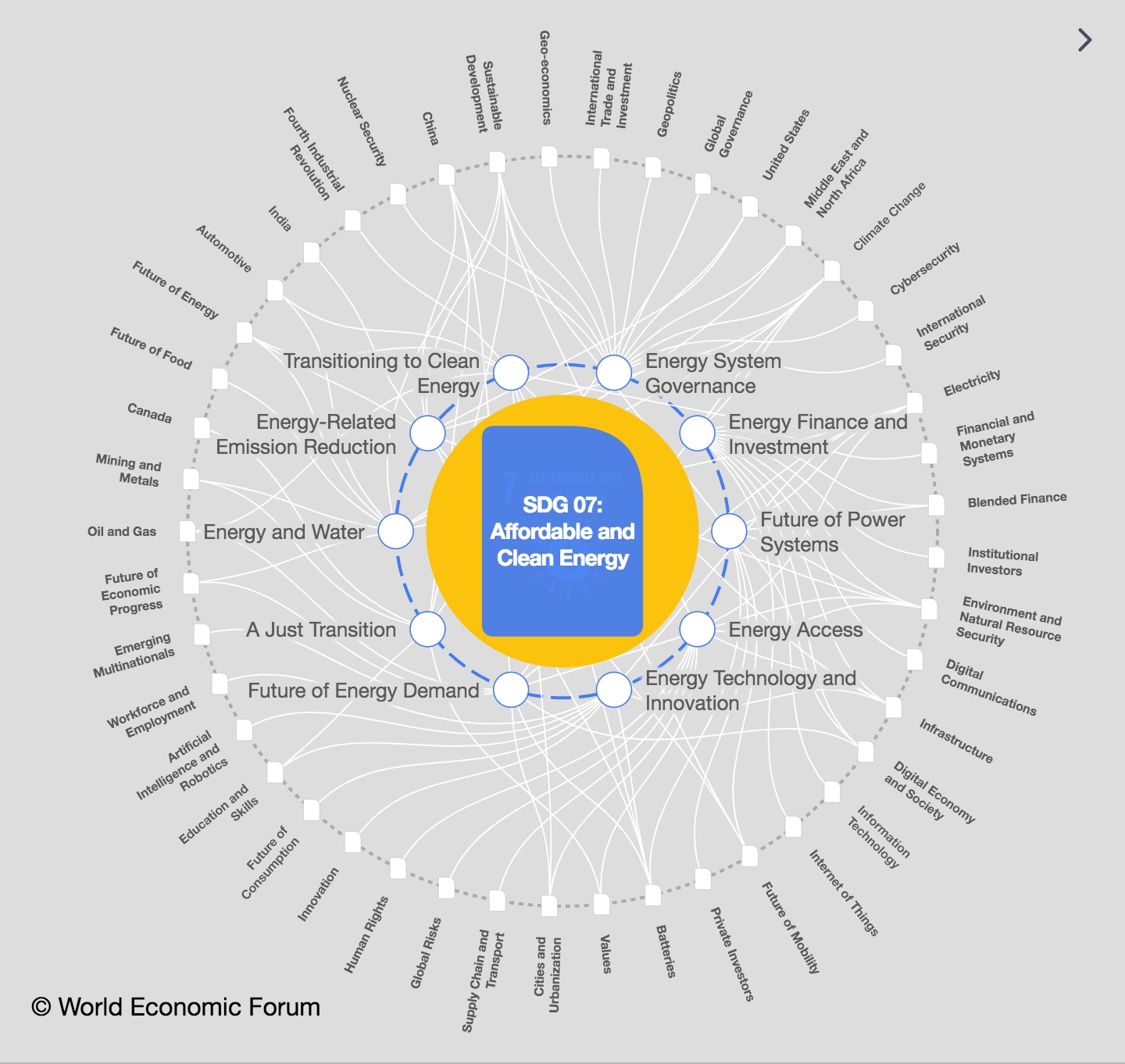Top cleantech R&D priorities to help tackle climate change

Image: Unsplash.

Get involved with our crowdsourced digital platform to deliver impact at scale
Stay up to date:
Decarbonizing Energy
- Pressing climate change targets require the energy industry to accelerate its efforts on developing clean technology.
- A recent survey from FCA asked key experts where industry and public investors should prioritize its R&D investment to help tackle climate change: here are its findings.
Future Cleantech Architects (FCA) has just completed a comprehensive expert survey on the future needs of cleantech R&D, with structured feedback from 114 expert participants worldwide. Experts were specifically asked to identify gaps remaining in the development of technologies and processes that have the potential to help reduce emissions fast, thereby effectively tackling the climate challenge.
Coming from four main sectors (see chart 1), these professionals predominantly work in positions of decision-making authority over various aspects of technology. About a quarter of participants are utility or other energy sector executives, 23% work with cleantech in the public sector and about 19% approach this field from an investor’s perspective.
Participants shared their view on funding priorities for three time periods using our interactive online survey: 2021-2025; 2026-2030; beyond 2030.
Analysis of the survey data provided some of the answers we expected, given mainstream narratives on the energy transition and those components most closely associated with it – yet there were also a few surprises. While energy storage, zero-carbon fuels and industrial processes were amongst the top priorities, segments like carbon capture and storage (CCS) and digital tools not only ranked lower but were seen as controversial.
The survey allowed participants to rank the importance of various cleantech segments on a scale from 1 (most important) to 10 (least important) within certain time periods. A second section of the survey provided the option to add segments that were not listed and elaborate on more visionary ideas – beyond 2030 – and the best political measures they would recommend to quickly develop and scale those segments. There were no pre-formulated answers or limitations in this segment.
What's the World Economic Forum doing about the transition to clean energy?
While there was relatively broad consensus on clean electricity generation, storage and hydrogen production, segments like underground carbon storage or purely digital innovations received much more contentious feedback. One group of participants downplayed their relevance in the comments section and attributed it as a low priority while another was strongly in favour, ranking these technologies and processes among their top choices. Needless to say, the traditionally difficult topic of nuclear power (even in its most advanced forms) was often categorically ruled out.
R&D priorities up to 2025: storage technologies, generation and decarbonization
The first part of the survey focused on the most important R&D fields for the energy transition of the next five years. We applied a rating system that ranked the processes and technologies according to their positioning in the priorities of participants. Clean electricity received the highest score; it was the most frequently listed amongst the top three priorities for 2021-2025 across all sectors of participants (see chart 2). It was closely followed by R&D on energy storage and industrial decarbonization. Somewhat surprisingly, carbon capture and storage played a lesser role.
The largest differences of opinion occurred with regard to digital applications: some considered them highly important, while others assumed they would only begin playing a significant role beyond 2025. However, we could not detect a clear trend concerning particular professional groups – divisions also existed within the professions.
R&D priorities up to 2030: zero-carbon fuels, conversion processes and interseasonal storage
Given a longer-term perspective, the scope of the answers shifted. Participants seemed to trust that the challenge of clean electricity generation will have been overcome by 2025, shifting the priority to low-cost zero-carbon fuels and conversion processes in the segment of industrial decarbonization. We had included interseasonal (very long-term) storage amongst the options, and participating experts voted such approaches among their top three priorities. It is interesting to observe that for the time horizon up to 2030, participants did not expect major developments in nuclear fusion or large-scale direct air capture systems yet (see chart 3).
In the following overview, we have highlighted the two segments/technologies that were most drastically affected. Clean electricity generation lost its top position and zero-carbon fuels clearly took over the lead.
Political measures to speed up the process
When asked about possible recommendations for speeding up the cleantech development process, survey participants referred to a variety of political measures. We have clustered the most relevant ones into an overview (see chart 4). While not all of the measures fully fit the MECE logic (mutually exclusive, collectively exhaustive), we saw three overriding ones among the answers: financial support, regulatory efforts, and (to our surprise) visionary components. This overview is a side effect of the key survey scope, but it provides interesting stimulus for potential future steps.
Key drivers: 2030 and beyond
Which forces will drive the energy transition in the long term? Participants mentioned a wide array of segments that will need to be incorporated into cleantech R&D planning – and will most likely play a significant role beyond 2030. We have clustered them into four fields: technology, market design, digital and nature-related. They help to structure and categorize the most frequently mentioned segments.
Some of the technologies we consider critical for gaining control over the climate crisis were not among the top priorities cited in our survey in R&D for the next decade. This is probably because a majority of participants came from Europe, where the debate on the energy transition still predominantly revolves around the most prominent renewables, such as solar PV and wind, electric mobility, and more recently the potential of the hydrogen economy.
Results on the key drivers beyond 2030 show a more ambitious, visionary picture. For this period, participants of the survey expect innovative technologies from agriculture to carbon capture in combination with more advanced market design to play a larger role. Moreover, the next generation technology of proven solutions is expected to take over, and hybrid versions (such as farming photovoltaics) are predicted to increase in share. We consider it part of our mission to support significantly shortening the amount of time it takes to develop these more visionary ideas from something abstract and theoretical to effective applications in the mass market.
Don't miss any update on this topic
Create a free account and access your personalized content collection with our latest publications and analyses.
License and Republishing
World Economic Forum articles may be republished in accordance with the Creative Commons Attribution-NonCommercial-NoDerivatives 4.0 International Public License, and in accordance with our Terms of Use.
The views expressed in this article are those of the author alone and not the World Economic Forum.
Related topics:
The Agenda Weekly
A weekly update of the most important issues driving the global agenda
You can unsubscribe at any time using the link in our emails. For more details, review our privacy policy.
More on Climate ActionSee all
Gareth Francis
May 17, 2024
Andrea Willige
May 16, 2024
Anna Paula Brito
May 15, 2024
Alison Hagan
May 15, 2024
Charlotte Edmond
May 14, 2024













